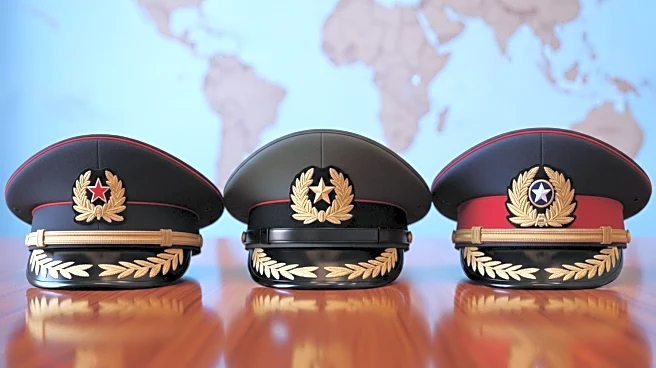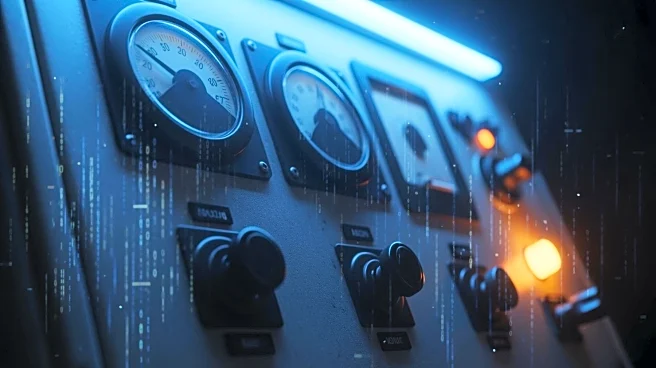What's Happening?
Chinese President Xi Jinping led a significant military parade in Beijing, marking the 80th anniversary of Japan's defeat in World War II. The event was attended by Russian President Vladimir Putin and North Korean leader Kim Jong Un, highlighting the strengthening ties between these nations. Xi's speech emphasized the historical resilience of the Chinese people against foreign adversaries and suggested a choice between war and peace in the current global landscape. The parade showcased China's military capabilities, including thousands of troops and advanced weaponry, symbolizing a potential shift in the postwar U.S.-led global order.
Why It's Important?
The participation of leaders from China, Russia, and North Korea in this military parade underscores a growing alliance that challenges Western influence and policies. This development could have significant implications for international relations, particularly in terms of military and economic strategies. The event signals a potential realignment of global power dynamics, with these nations presenting a united front against perceived Western hegemonism. This could lead to increased geopolitical tensions and impact global trade, security, and diplomatic relations.
What's Next?
The parade may prompt reactions from Western countries, potentially leading to diplomatic discussions or strategic adjustments in response to the perceived threat. The strengthening of ties between China, Russia, and North Korea could result in further collaborative efforts in military and economic spheres, possibly influencing regional stability in Asia and beyond. Observers will be watching for any shifts in policy or military posturing from the U.S. and its allies as they assess the implications of this alliance.
Beyond the Headlines
The event highlights deeper cultural and historical narratives, as China positions itself as a defender of justice and national rejuvenation. This could influence domestic and international perceptions of China's role in global affairs, potentially affecting its soft power and cultural diplomacy. The parade also raises questions about the ethical dimensions of military displays and the messaging around peace and conflict.










